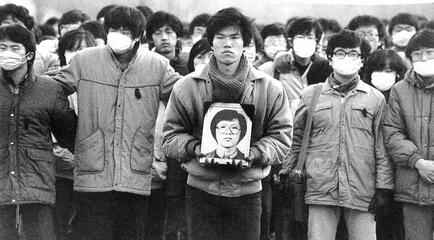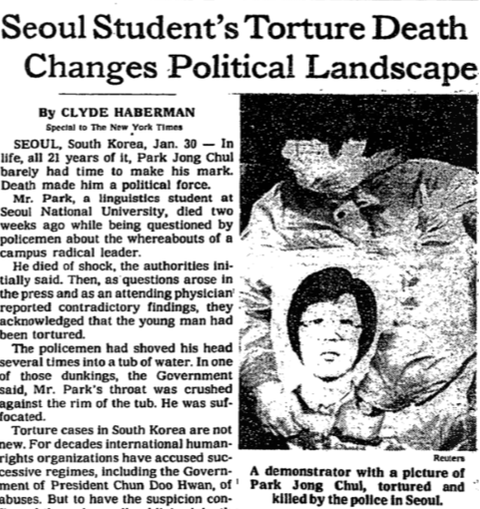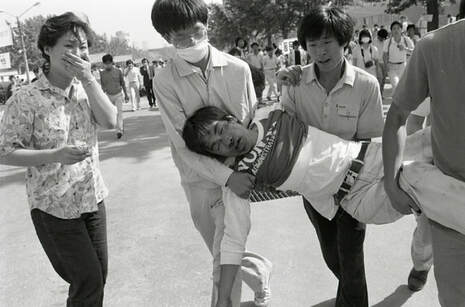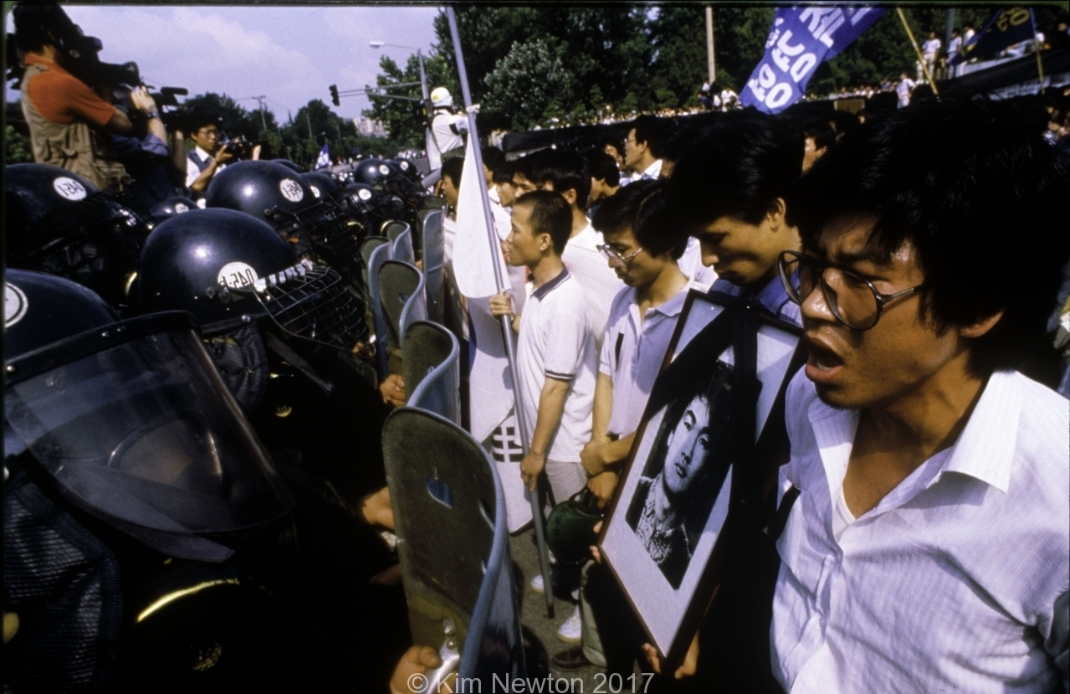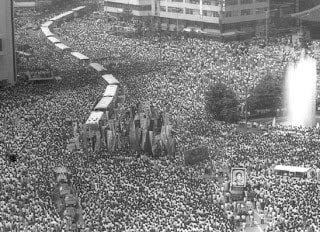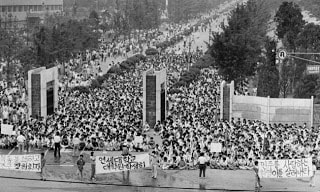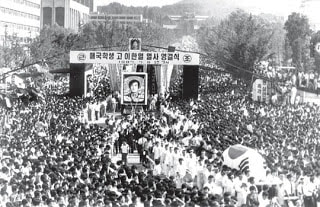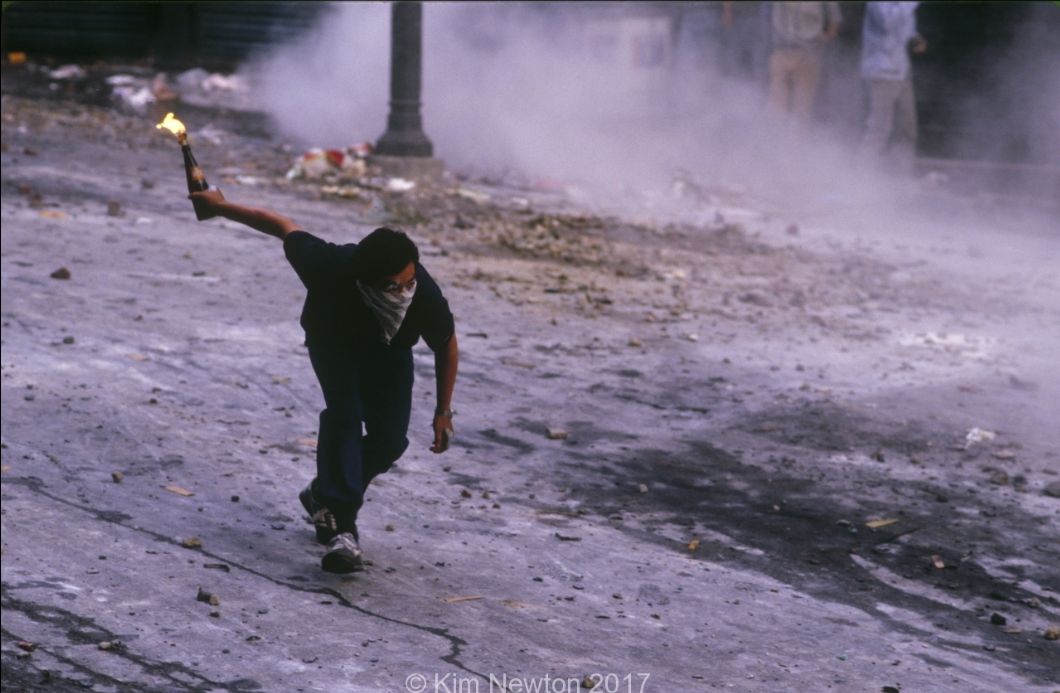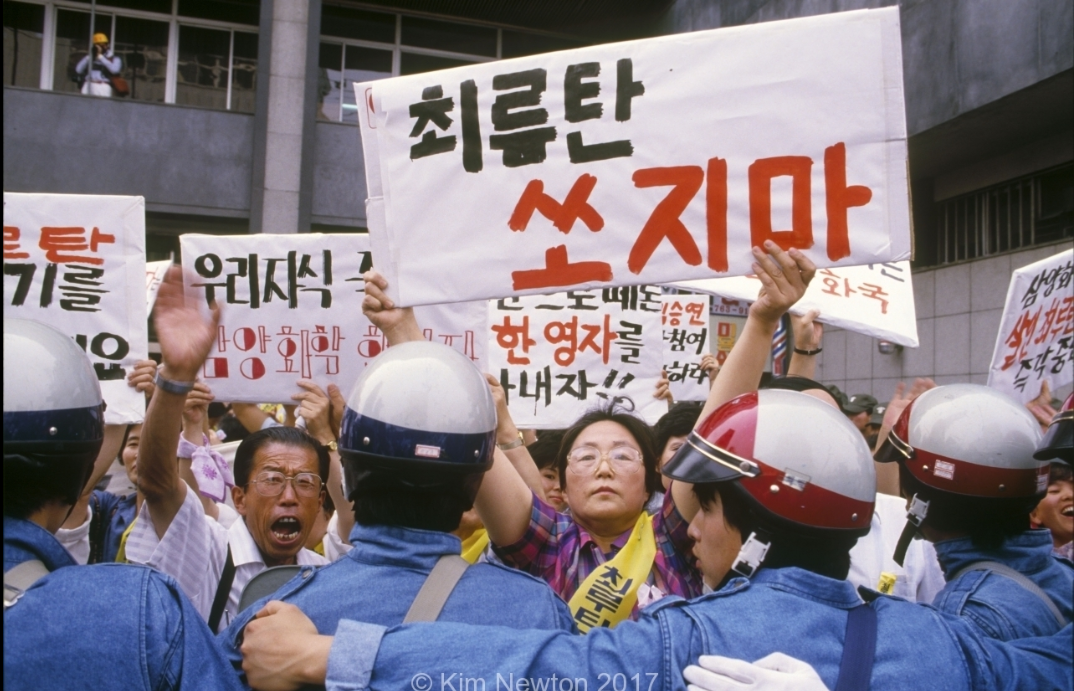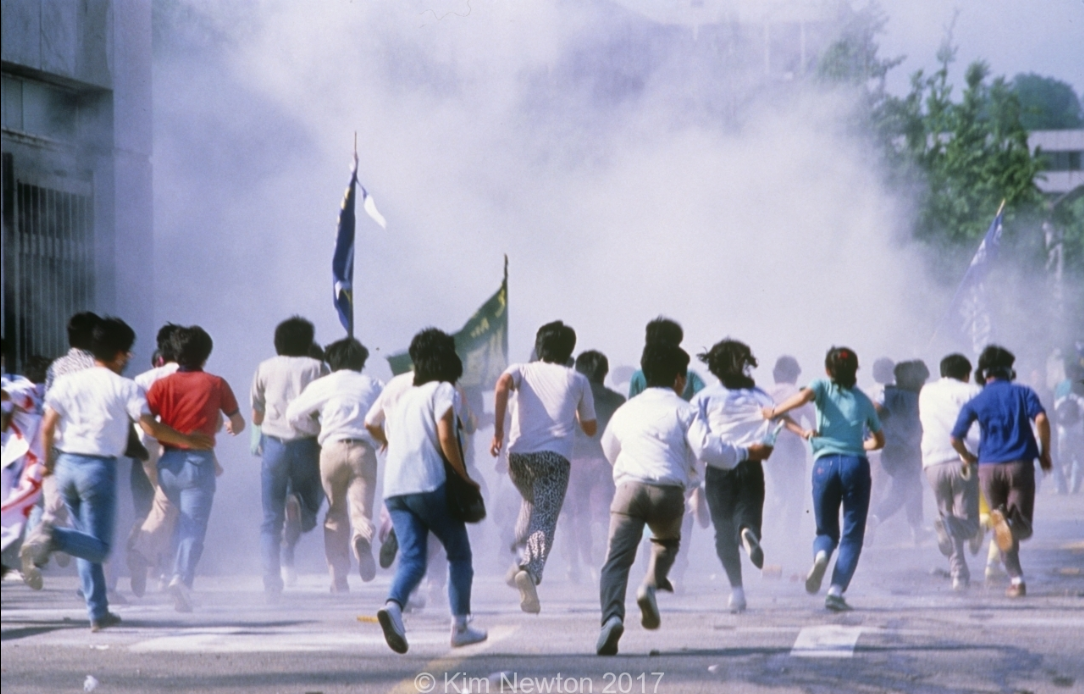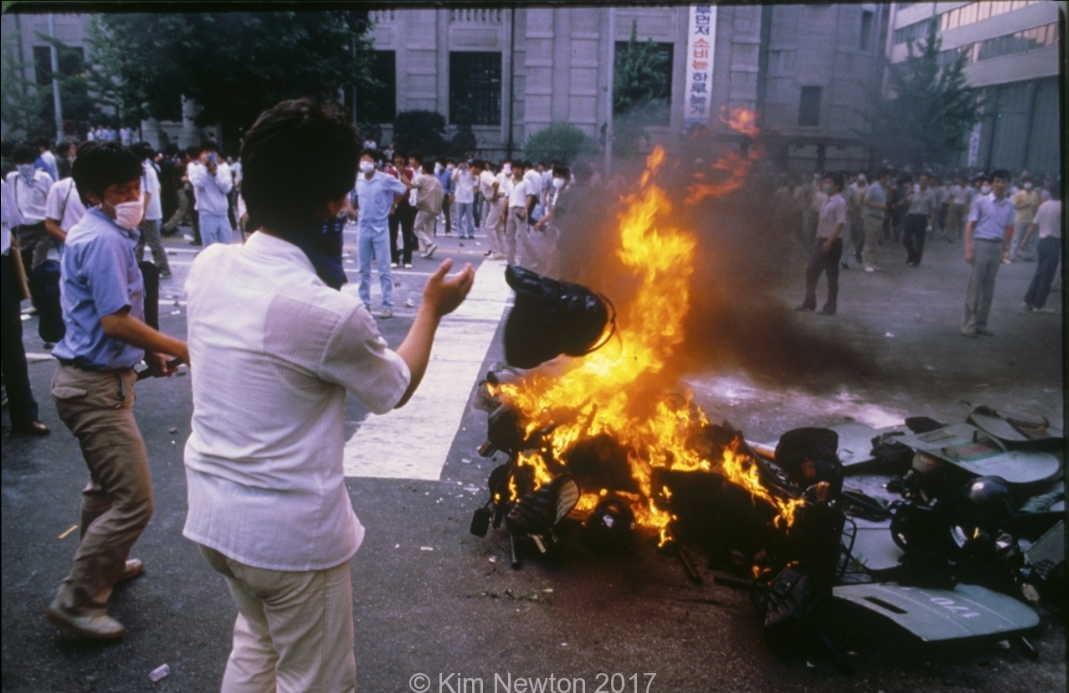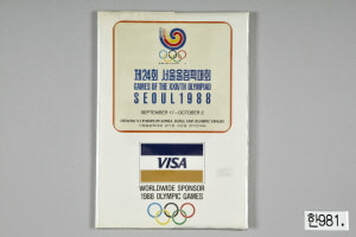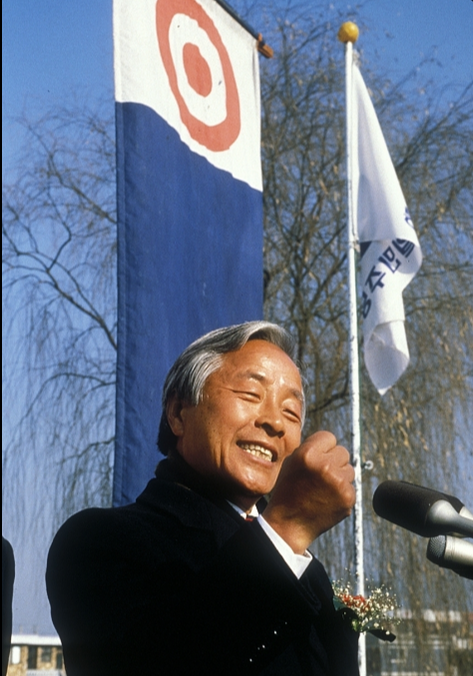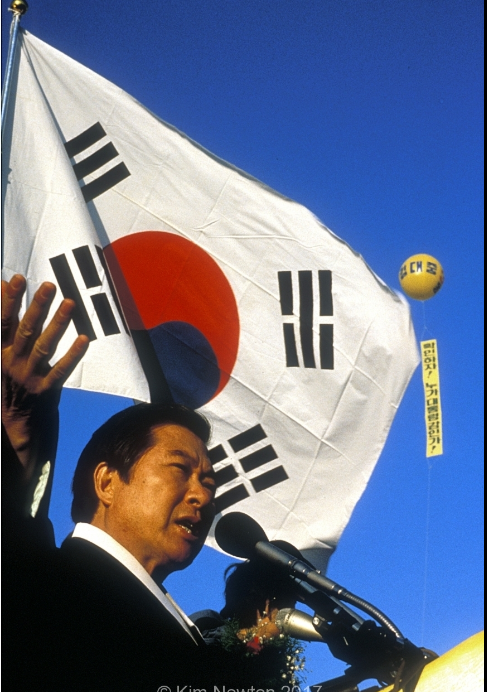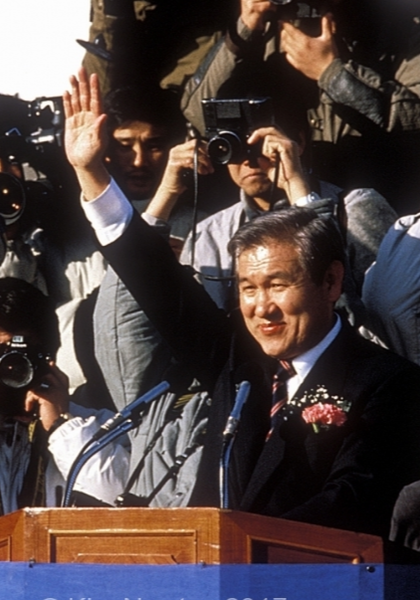Protesters holding the Korean flag. 6.10 Organization.
"Remembering Gwangju"
"When pruned, some varieties of trees wither and die. Others grow back stronger than ever. The same may be true of people."
-George N. Katsiaficas, Asia's Unknown Uprising
-George N. Katsiaficas, Asia's Unknown Uprising
On Feb. 12, 1986, the New Korea Democratic Party collected 10 million signature for constitutional revisions as Chun Doo-hwan's presidency neared an end.
"The students killed during the democracy movement symbolized the terror and the lack of democratic values that the dictatorial government of then President Chun Doo Hwan represented. The senseless torture death of Park Jong Chul stirred the emotions of a majority of the nation and symbolized what was wrong with maintaining a government that was not directly elected by the people."
-Kim Newton, personal interview.
On June 9, Lee Han-yoel, a student at Yonsei University, was announced dead from tear gas used to control crowds. People were enraged. Lee Han-yoel and Park Jong Chul became icons for South Korea's Democratic Movement.
On June 10, millions of citizens remembering how the voices in Gwangju were quelled, participated in the June Struggle of 1987, pushing for democratic reforms.
The quantity of people during the June Struggle. KoreaBridge.
“Police saturated protesters with tear gas. They escaped through alleys and regrouped. Shopkeepers pulled down their shutters but opened them to rescue stragglers sputtering from the gas. The battle line kept shifting. The rubble of street warfare was everywhere. Fist-sized chunks of paving stone littered main thoroughfares. But there was an order. No shops smashed, no cars overturned, nothing burned, and miraculously, no one killed.” |
© Kim Newton All Rights Reserved, South Korean Democracy Movement 1987.
|
|
Guide map for Seoul Olympic Games. National Museum of Korean Contemporary History.
|
Fear of a nationwide protest, the concern of a canceled Olympics, and pressure from an U.S. afraid of another Gwangju Uprising, a triumphant announcement was made.
"...[T]he people were so strong in their demand for change, if the movement had been suppressed it would have resulted in... bloodshed, and the ruling group thought that it would then be difficult to deal with resulting issues. The fear was that the Olympics could be cancelled. So the elite decided to compromise." |
June 28, Roh Tae-woo announced that he would be pushing president Chun Doo-hwan for direct elections.
"Are the Olympics more important than democracy? Is there any event that can be more important than democracy?"
-Kim Dae Jung.
|
Finally, after years of protest and bloodshed, political prisoners such as Kim Dae Jung were released and direct elections would be held in the fall of 1987.
|
"In a country like ours, it requires a lot more courage to give up powers than to grab it." |
The Dynamic Development of Korean Democracy. Korea Democracy Foundation.
Kim Young-sam, Kim Dae Jung, and Roh Tae-woo were the popular candidates in the 1987 election, a nation's triumph.
© Kim Newton All Rights Reserved, South Korean Democracy Movement 1987.
"...[T]he subsequent elections were the beginning of a new era for the South Korean people."
-Kim Newton, personal interview.
South Korea direct election, Dec. 15, 1987. ABC News.
"The June Struggle is a joint mission to all of us. We have a historical debt to nameless young ones and those who lost their lives."
-Ham Sei-ung.
Leslie Kim
The Gwangju Uprising: Triumphs from Tragedy
Junior Category - Individual Website
Student Composed Words: 1,199
Process Paper Words: 499
Multimedia: 3:58
The Gwangju Uprising: Triumphs from Tragedy
Junior Category - Individual Website
Student Composed Words: 1,199
Process Paper Words: 499
Multimedia: 3:58
Proudly powered by Weebly

